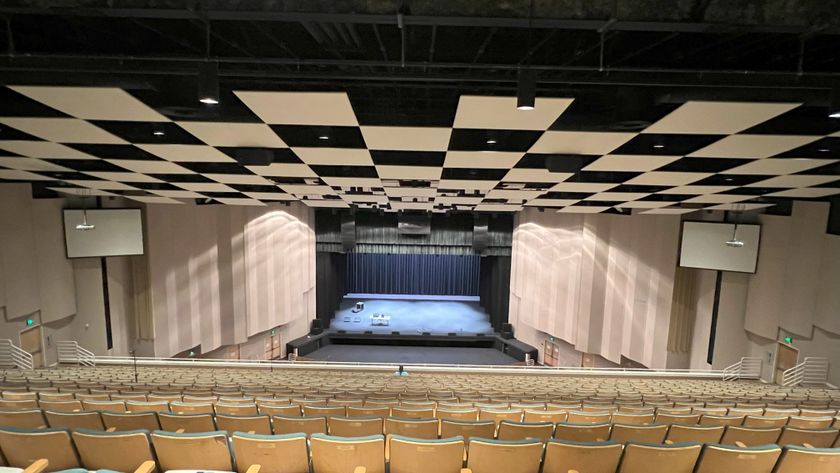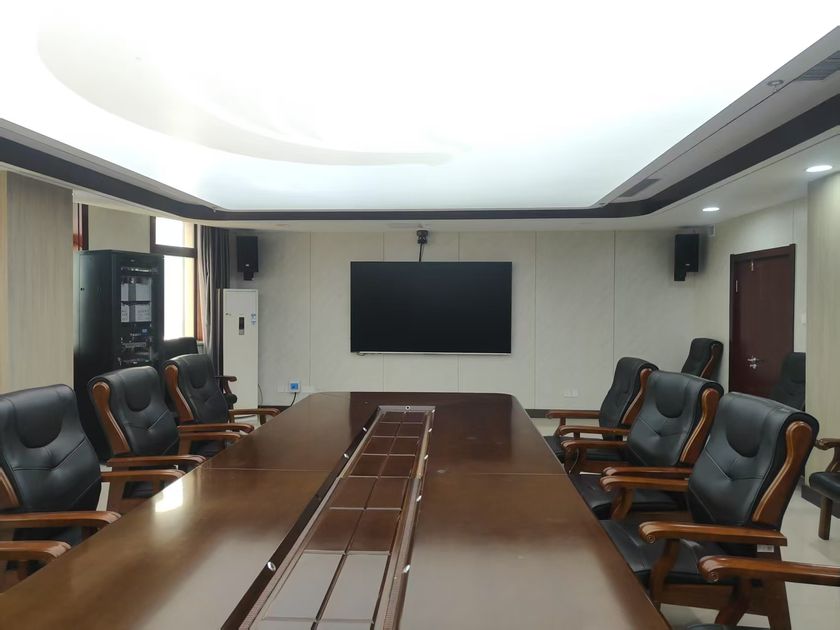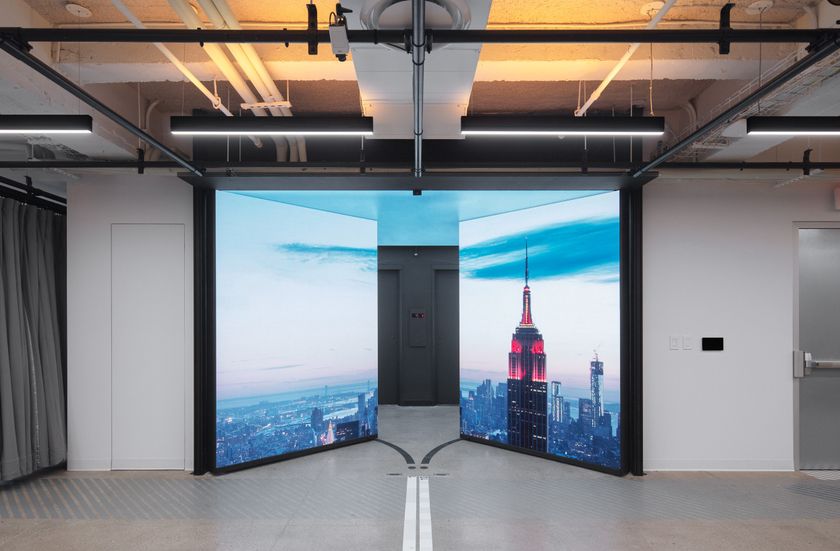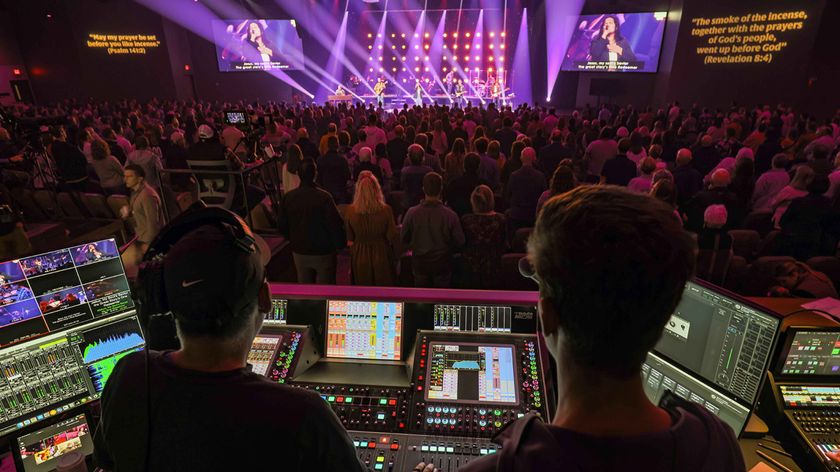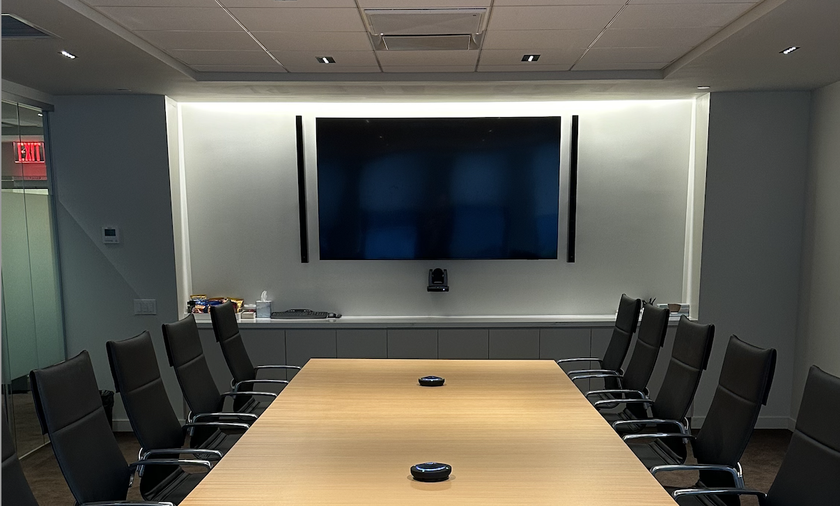The Calvary Church in Clearwater, FL, has embraced 3D audio using d&b audiotechnik Soundscape for congregational membership of 10,000 people.
The multi-campus church, which includes an on-line campus and live steaming of their services, reaches over 4,000 people across its campuses. After studying areas of improvement, Calvary determined that the audio system in the sanctuary was unsatisfactory and did not meet the needs of the church. In 2021, the church contacted Washington Professional Systems (WPS), out of Wheaton, MD, to assist in designing a completely new audio system for the sanctuary that would improve the overall sonic quality within the acoustic limitations of the space. The church wanted to improve the connection and engagement with its congregation of 2,000 and using Soundscape as an enabling technology, can achieve this goal throughout the 2,000-seat house.
d&b Soundscape increases spatial detail and headroom beyond a traditional system while reducing the burden to the mix engineer. The system is automatically optimized to allow each loudspeaker to automatically handle a different mix of signals, adjusting both level and delay which effectively enables the loudspeakers to work as a cohesive group. The audience receives accurate localization, and the engineer often requires less channel processing and plug-ins because the system doesn’t require as much mix processing. Adding surrounds then elevates the capabilities even further.
[SCN Hall of Fame 2023: Ralf Zuleeg]
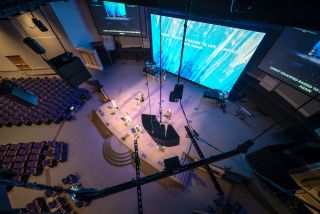
There were challenges that needed to be addressed in the church sanctuary: poor audio coverage throughout the space; significant drop-offs in bandwidth; considerable quality variations from seat to seat; substantial comb filtering during musical acts; poor intelligibility of spoken word and band vocals. The sanctuary was initially designed as a traditional fan-shaped auditorium with a minimally raked, single-bowl seating section.
“After exploring a variety of different audio solutions, the church ultimately decided to implement the d&b Soundscape system to individually time-align input sources to each speaker within each of the system arrays,” explained Keith Neubert, executive director of engineered systems, Washington Professional. “Using the DS100 signal engine combined with the d&b En-Scene algorithm and d&b loudspeakers, listeners seated in any location of the sanctuary receive an accurate audio picture with Soundscape, reducing phase cancellation and increasing clarity throughout the frequency range, giving excellent intelligibility of spoken word and band vocals from the stage.”
[Streaming Services: Houses of Worship and the Online Experience]
“We liked how user-friendly the Soundscape system is and that it can be controlled from the platform or from front of house,” said lead pastor and administrator, Thomas Price. “The cost-to-value made purchasing Soundscape and the A-Series loudspeakers from d&b the right call for us. The audio clarity was significantly and noticeably improved on the first Sunday the new system was commissioned. People who never commented about the poor quality of sound coming from the older system realized they had become accustomed to it. With Soundscape, they could hear how far from quality audio we had drifted.” Deployable in vertical or horizontal arrays with adjustable splay angles, the d&b A-Series augmented array extends flexibility beyond its usual limits and is ideal for mid-size venues.
The complete d&b configuration included: 20 Ali60 loudspeakers in five horizontal arrays of four cabinets each, two KSLi-SUB, 2 x 21S SUBs, seven 44S loudspeakers (flush mount), four 40D amplifiers, two 10D amplifiers, a DS10 audio network bridge, and DS100 Signal engine with En-Scene.
“In addition to congregants, church staff notice an immediate difference with the immersive quality of the d&b Soundscape audio system and its ability to deliver a natural, realistic experience for the entire congregation,” added Neubert.” For speakers, vocalists, and performers, stage monitoring quality has also improved significantly, allowing them to hear themselves without intrusive feedback, echoes, or phase cancelling.”

